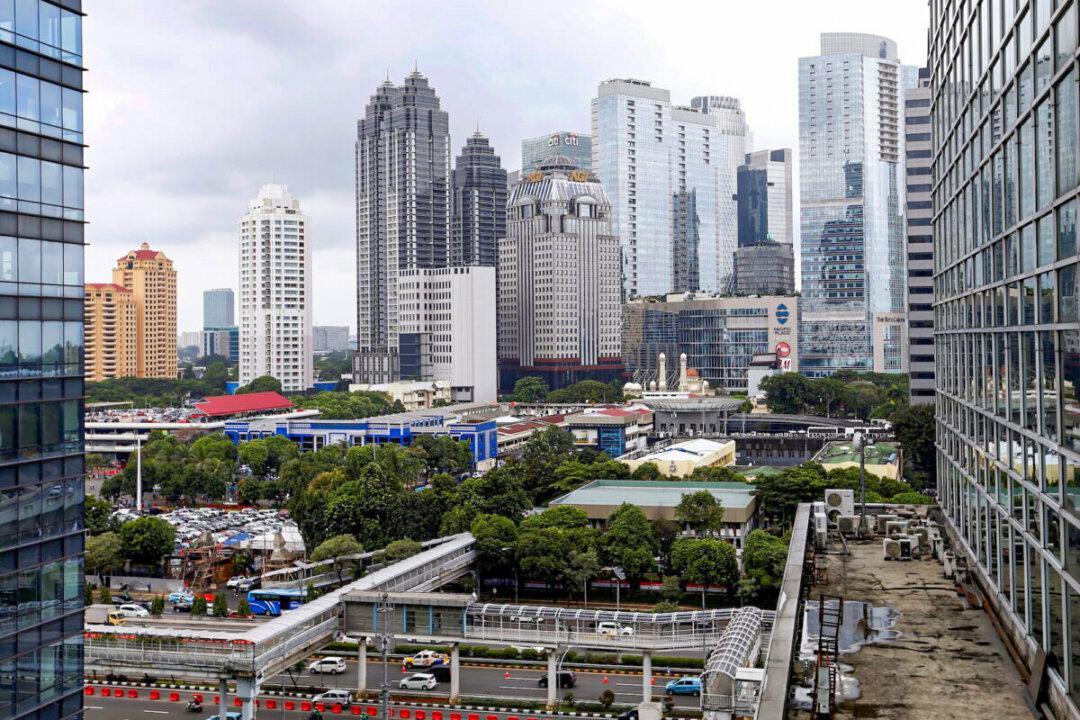Indonesia’s economy grew by 5.01 percent from January to March 2022 compared to the same period a year earlier, matching the 5.02 percent growth rate seen in the fourth quarter of 2021, according to data released by the country’s statistics agency on May 9.
Growth in the first quarter was mainly supported by a recovery in consumption, investment, and exports. Data showed that exports of goods and services increased by 16.22 percent in the first quarter.





